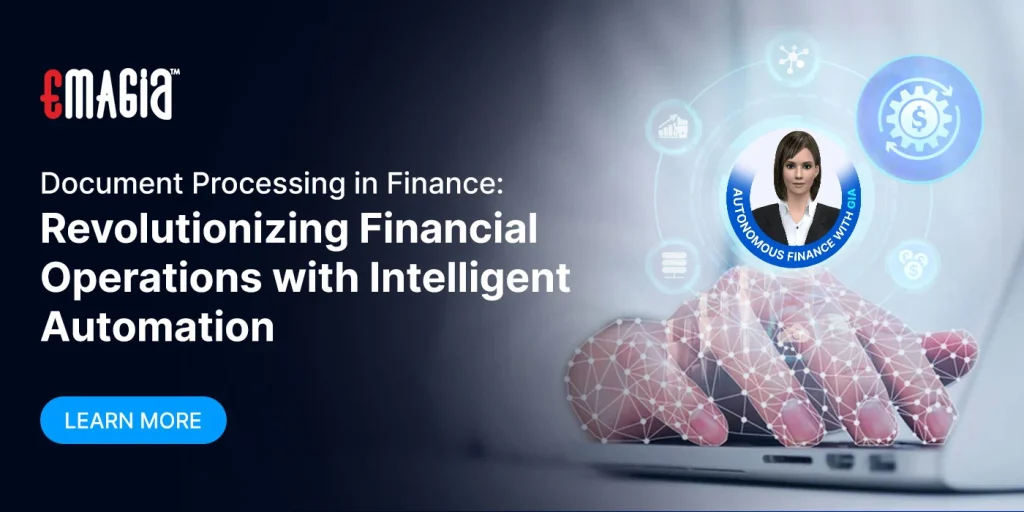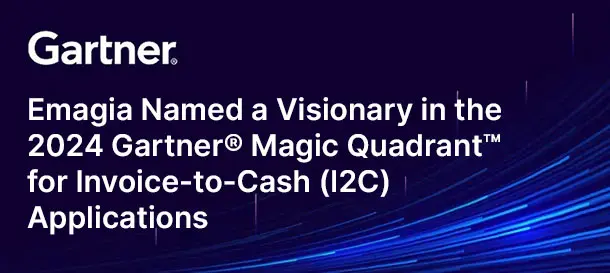In the dynamic world of finance, efficient document processing is crucial for maintaining accuracy, compliance, and operational efficiency. Traditional manual methods are increasingly being replaced by intelligent automation solutions that streamline workflows and enhance data accuracy.
Understanding Document Processing in Finance
Document processing in finance involves the systematic handling of financial documents—such as invoices, contracts, and statements—to extract, validate, and manage data effectively. This process is vital for tasks like accounts payable, regulatory compliance, and customer onboarding.
The Evolution of Document Processing
Historically, financial institutions relied on manual data entry and template-based Optical Character Recognition (OCR) for document processing. However, these methods were time-consuming and prone to errors. The advent of Intelligent Document Processing (IDP) has transformed this landscape by leveraging Artificial Intelligence (AI) and Machine Learning (ML) to automate and enhance document handling.
Key Components of Intelligent Document Processing
- Data Extraction: Utilizing AI to extract relevant information from various document types, including unstructured data like emails and handwritten notes.
- Data Validation: Ensuring the accuracy and compliance of extracted data through automated validation processes.
- Data Classification: Organizing documents into predefined categories for efficient management and retrieval.
- Workflow Automation: Streamlining document workflows to reduce manual intervention and accelerate processing times.
Benefits of Intelligent Document Processing in Finance
- Enhanced Efficiency: Automating routine tasks allows financial institutions to process documents faster and allocate resources more effectively.
- Improved Accuracy: AI-driven solutions minimize human errors, ensuring data integrity and reliability.
- Cost Reduction: By reducing manual labor and operational inefficiencies, organizations can achieve significant cost savings.
- Regulatory Compliance: Automated systems can be configured to adhere to regulatory requirements, reducing the risk of non-compliance.
Applications of Intelligent Document Processing in Financial Services
- Customer Onboarding: Accelerating the onboarding process by quickly processing identity documents and extracting relevant information.
- Invoice Processing: Automating the extraction and validation of data from invoices to streamline accounts payable.
- Contract Analysis: Interpreting complex contract language to provide insights into terms and obligations, aiding in risk management.
- Regulatory Reporting: Facilitating the extraction and compilation of data required for regulatory reports.
Challenges in Implementing Intelligent Document Processing
- Data Security: Ensuring the protection of sensitive financial information during processing.
- Integration with Legacy Systems: Overcoming compatibility issues between new automation solutions and existing infrastructure.
- Data Quality: Addressing issues related to the quality and consistency of data extracted from various document types.
How Emagia’s GiaDocs AI Enhances Document Processing in Finance
Emagia’s GiaDocs AI offers a comprehensive solution for financial document processing by leveraging advanced AI and ML technologies. It automates data extraction, validation, and classification, ensuring high accuracy and compliance. GiaDocs AI seamlessly integrates with existing financial systems, providing a scalable and efficient approach to document management.
FAQs
What is Intelligent Document Processing (IDP) in finance?
IDP in finance refers to the use of AI and ML technologies to automate the extraction, validation, and management of data from financial documents, enhancing efficiency and accuracy.
How does GiaDocs AI improve document processing?
GiaDocs AI automates data extraction and validation, reducing manual errors and processing times, and ensuring compliance with regulatory standards.
What are the benefits of automating invoice processing?
Automating invoice processing streamlines accounts payable, reduces errors, accelerates payment cycles, and enhances supplier relationships.
How does GiaDocs AI ensure data security?
GiaDocs AI employs advanced encryption and security protocols to protect sensitive financial information during processing.
Can GiaDocs AI integrate with existing financial systems?
Yes, GiaDocs AI is designed to seamlessly integrate with various financial systems, enhancing existing workflows without extensive overhauls.
What challenges might arise when implementing IDP solutions?
Challenges include ensuring data security, integrating with legacy systems, and maintaining data quality across diverse document types.
How does GiaDocs AI handle unstructured data?
GiaDocs AI utilizes advanced AI algorithms to process and extract data from unstructured documents, such as emails and handwritten notes, ensuring comprehensive data capture.
What industries can benefit from GiaDocs AI?
While primarily designed for the financial sector, GiaDocs AI can also benefit industries like healthcare, legal, and insurance by automating document processing and data management.
In conclusion, intelligent document processing is transforming the financial industry by automating and enhancing document management processes. Solutions like Emagia’s GiaDocs AI are at the forefront of this transformation, offering financial institutions the tools needed to improve efficiency, accuracy, and compliance in their operations.





